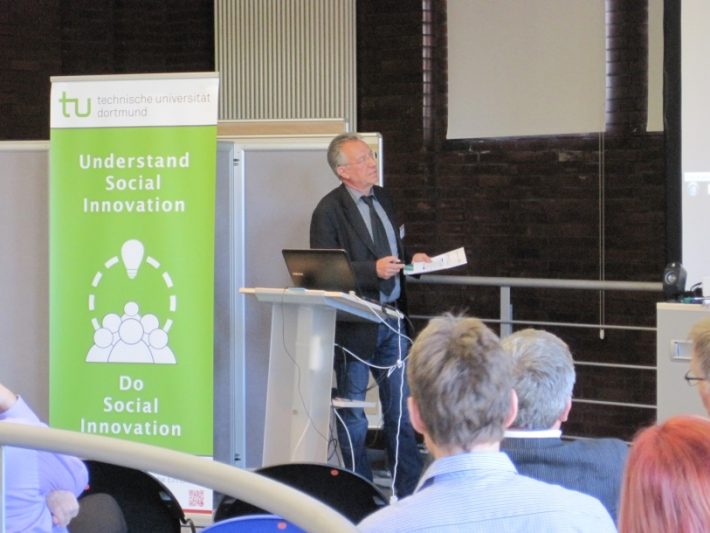SI-DRIVE’s Global Mapping results presented at the BDS’s national conference 2017, addressing practitioners, politicians and academics.
From the 9th of June to the 11th of June, the Professional Association of German Sociologist (BDS), the City of Dortmund and TU Dortmund University (with its Social Research Centre- sfs) jointly hosted the 19th Conference for Applied Social Sciences in Dortmund – in cooperation with the European School of Social Innovation (ESSI), the Faculty for Spatial Planning (TU Dortmund), the Research Institute for Regional and Urban Development (ILS), the German Transfer Centre for Social Innovation (DTZ SI). On the topic “designing social innovation locally” attention was shifted towards the practical implementation of social innovations. Antonius Schröder, coordinator of SI-DRIVE, presented the results of the SI-DRIVE global mapping as a keynote speaker during the conference’s opening plenum, thereby reaching a broad audience of practitioners, academics as well as politicians. Approximately 130 participants have attended the conference and heard the contributions that illuminated the facet of social innovation, in all its diversity and complexity.
The conference participants discussed how social innovations could be unfold in local areas, cities and communities, in districts and institutions, e.g. by having a closer look at social projects and neighborhood development programs, as well as at technical initiatives, car sharing and social use digital media. Additionally, aspects of process dynamics, actor constellations and cooperation as well as barriers and drivers for local social innovations have been considered as well as the role of (social) science. How can science and scientific knowledge contribute to the development of a Social Innovation ecosystem and which task can social science take over in local social innovation processes?
Further information (in German language): http://bds-soz.de
